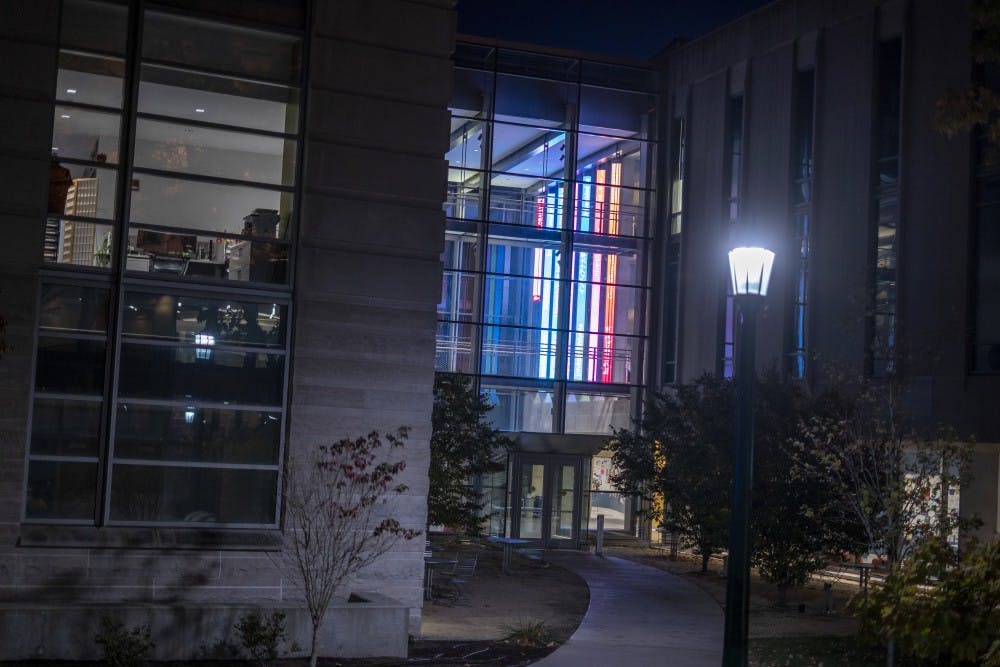Indiana Model United Nations will travel Oct. 31 to Philadelphia for the University of Pennsylvania Model United Nations Conference.
The Indiana Model UN is a student organization with two main components: planning the annual high school conference and competing in conferences. This year, the high school conference, Indiana Model United Nations Conference VI, is Feb. 21-23.
At these conferences, members selected to compete are put into different committee groups and are scored based on their performance.
About two weeks before the conference, students are assigned a specific role within the Model UN conference. The 24 members attending the conference will be split up and either placed into a crisis or general assembly committee.
Those placed on a crisis committee seek to fix issues that arose from an important real event that occurred in the past. To address the aftermath, members are assigned a specific role on a leadership committee that existed at the time of the event and then are tasked with writing papers to either address different areas of the crisis or multiple crises.
The papers assess the specific issues introduced during the conference and give recommendations for how to solve them.
At one conference, Madeline Garcia, director general for IndianaMUNC VI, was on a crisis committee that addressed the aftermath of the 1996 shooting in Australia. She acted as the Minister of Commerce at the time, Amanda Vanstone, and worked through issues such as gun regulation by acting in the way Vanstone would have during the debates.
In these committees, attention to historical significance is important because the student participants are assigned a name of a real delegate that served in a leadership role. During the meetings, the students attempt to act like that person would have in their assigned situation based on that person’s political leanings or previous experience.
One requirement of the crisis committee members is to write crisis notes, which are letters, usually sent to one person, that outline their personal agenda. Each note contributes to a different part of the student delegate’s mission.
Garcia said writing these notes is when people are able to stray a little bit from their assigned role.
“When it comes to your crisis notes and that personal agenda, you are kind of doing your own creative spin,” Garcia said.
The general assembly committees are set up to resemble the real UN. Ashley Sharpley, Under-Secretary-General of operations for Indiana MUNC VI, said the goal of these committees is to ultimately write and pass a resolution that answers the problems the delegates are attempting to solve.
At the upcoming conference, Ashley Sharpley and her partner, whom she competed with at the last conference, will represent India in the Social, Humanitarian and Cultural Committee. During the conference, they will address either reconstruction following the Sri Lankan Civil War or freedom of expression and access to media in Asia, which they will research in the time leading up to the conference.
“My partner and I just worked together in D.C., so I’m really excited to build off of all the work we did,” Sharpley said.
While performing their assigned jobs during the conference, the students participating will be judged by members of the University of Pennsylvania’s Model UN.
There is not a specific score card the judges work from, so the judging is a bit subjective. However, conferences are generally judged on the same basic characteristics, such as knowledge of the topics, their ability to negotiate and work with other participants and their writing and speaking abilities, said Indiana MUN President Andrew Greco.
“What they are looking for is the person or people that strive debate forward the most, through either their speech, their working with other people,” Greco said. “It’s the kind of people that have the most impact on the room.”




